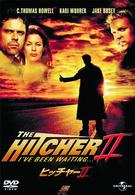- ホーム
- > 洋書
- > 英文書
- > History / World
Full Description
In Only a Few Blocks to Cuba, Mauricio Castro shows how the U.S. government came to view Cuban migration to Miami as a strategic asset during the Cold War, in the process investing heavily in the city's development and shaping its future as a global metropolis.
When Cuban refugees fleeing Communist revolution began to arrive in Miami in 1959, the city was faced with a humanitarian crisis it was ill-equipped to handle and sought to have the federal government solve what local politicians clearly viewed as a Cold War geopolitical problem. In response, the Eisenhower and Kennedy administrations, and their successors, provided an unprecedented level of federal largesse and freedom of transit to these refugees. The changes to the city this investment wrought were as impactful and permanent as they were unintended. What was meant to be a short-term geopolitical stratagem instead became a new reality in South Florida. A growing and increasingly powerful Cuban community contested their place in Miami and navigated challenges like bilingualism, internal political disputes, socioeconomic polarization, and ongoing struggles and negotiations with Washington and Havana in the decades that followed. This contested process, argues Mauricio Castro, not only transformed South Florida, but American foreign policy and the calculus of national politics.
Castro uses extensive archival research in local and national sources to demonstrate that the Cuban diaspora and Cold War refugee policy made South Florida a key space to understanding the shifting landscape of the late twentieth century. In this way, Miami serves as an example of both the lived effects of defense spending in urban spaces and of how local communities can shape national politics and international relations. American politics, foreign relations, immigration policy, and urban development all intersected on the streets of Miami.
Contents
A Note on Terms
Introduction. "The Seventh Province of Cuba"
Chapter 1. "Our Unnoticed Neighbors": Cuban Refugees, Community Action, and the Push for a Federal Response
Chapter 2. "The Score": Federal Funding, Refugee Management, and the Changing Economic Landscape of South Florida
Chapter 3. "A Potentially Explosive Mix": Race, Citizenship, and the Politics of Exile at the National and Local Levels
Chapter 4. "At Home, but Homesick": Bilingualism, Local Politics, and the Divided Politics of Cuban Miami
Chapter 5. "Will the Last American to Leave Miami Please Bring the Flag?": The Mariel Boatlift, Backlash, and the Politics of Image in Miami
Chapter 6. "A Crisis in Clout": The Maturation of Cuban American Politics, the Cuban Lobby, and the Limits of Influence
Epilogue. "We'll Be Back in Cuba in Six Months"
Archives, Collections, and Oral History Sources
Notes
Index
Acknowledgments








